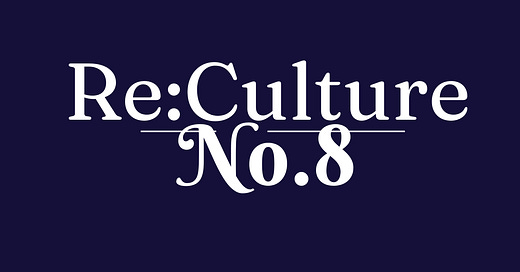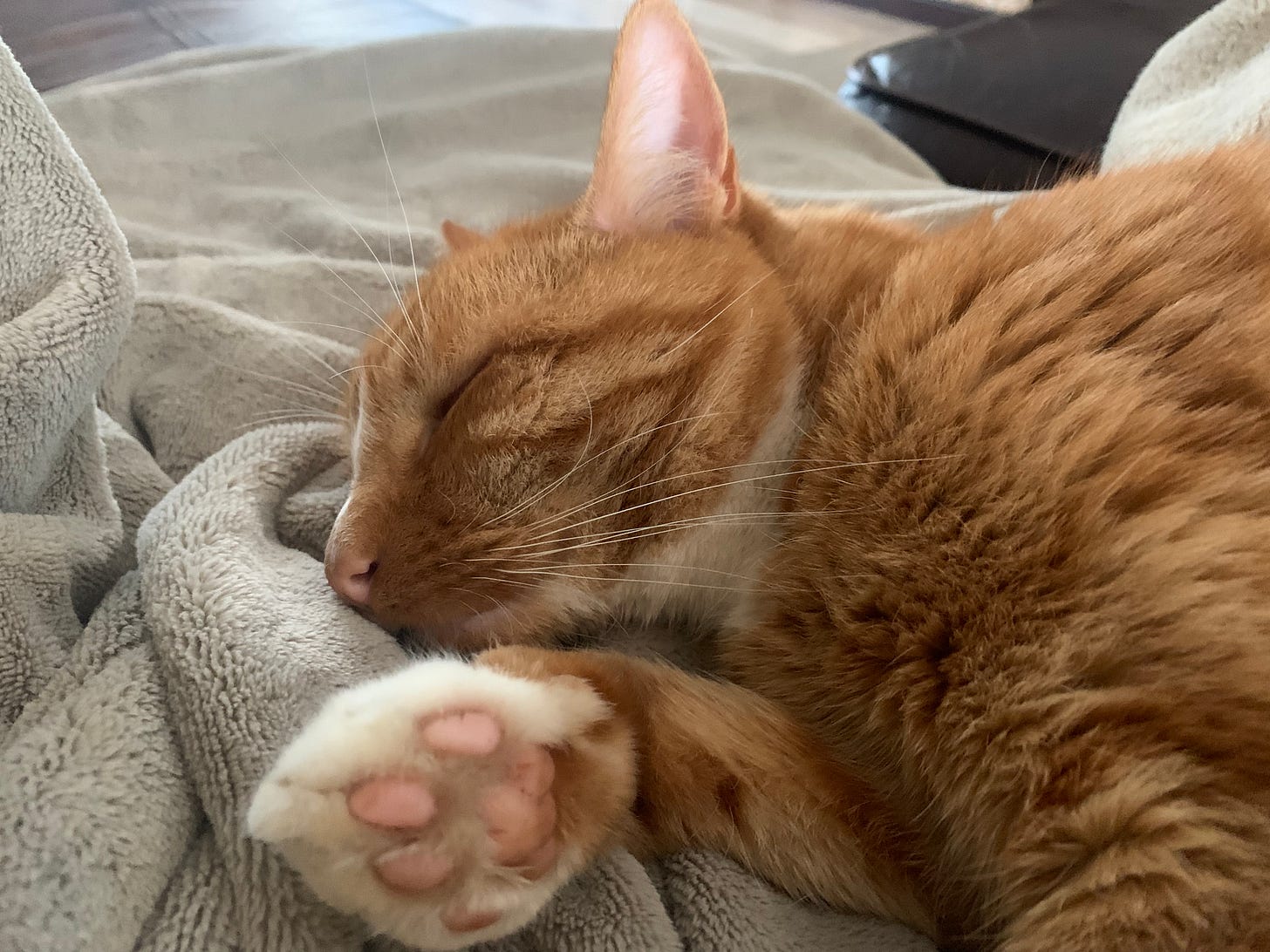Hi friends,
It’s been interesting to observe how my writing has evolved since I started this Substack. Today’s essay was actually the quickest one I’ve written—first draft was done on a Saturday afternoon followed by edits and rewrite on the Sunday afternoon. That’s it. I didn’t change the structure or anything from my first draft, just fixed a few clunky and sloppy bits. I’m sharing this because a few months ago (weeks ago, even) this would’ve seemed impossible to me. But I’ve been really holding myself to the whole “don’t boo yourself offstage before you’ve even gone on” motto and trusting that I will actually get better at this whole non-academic writing thing. So, here’s my little reminder to keep doing what you want to do, even when it feels kind of sucky or you’re not good enough, because you will get better. This essay was fun and easy to write. What a revelation. I hope it’s fun and easy to read, too.
Anyway, today’s newsletter comes from Bath again. Here’s the gingie we’re looking after.
When the alarm went off, my first reaction was to ask my boyfriend the time. I was burrowed in my duvet, ready to nestle my frosted cherry of a nose into my pillow and fall back asleep. It was a Saturday, and I hadn’t set an alarm of my own. Cozying back up to L in attempt to charm him back to sleep, I hoped he’d say it was time for a lie in. It was a weekend after all, and something I learned from him was to never set alarms on the weekend.
He read out the time in a tone that said he was ready for the day. I turned on my side, pig-in-a-blanketed myself, and pretended I didn’t hear.
This has become a familiar routine the last few weeks: alarm goes off (usually around 7 am), I decide I don’t care and fall back asleep, his alarm goes off (some 30 minutes later), I decide I still don’t care and sleep some more, and eventually I wake up somewhere between 8:30 am and just before 10 am. At the best of times, I’m slow to get fully ready in the morning (my fatigue from ME/CFS usually affects me the worst the first few hours of the day). Still, I’m not normally one to sleep in. Ordinarily, sleeping until 9 am is something of an accomplishment for me. Lately, though, it’s an accomplishment if I wake up by then.
Fortunately, I’m on no one’s schedule but my own right now, so my wake-up time isn’t going to get me laid off work. I finished my postdoc in October and haven’t looked for a “proper” job since then; I’m freelance writing and don’t have anywhere to clock into, or anyone to report to. I don’t have any kids to make breakfast for, and let’s be real: sleeping an extra hour or two isn’t exactly the kind of sleeping-through-the-whole-day kind of situation that might suggest a trip to the doctor is in order.
And yet, I have that nagging feeling that I’m doing something wrong.
Of course, my late mornings have coincided with the influx of YouTube videos purporting to help people get their shit together for 2023. You know, the videos titled “How to wake up before 6 am every day” and “How to wake up at 5:30 am: realistic and productive habits for 2023,” which usually feature some kind of “health” drink (e.g. lemon water), some kind of “movement” (“I just feel so much better when I run a 5k first thing in the morning!”), and a few hours of side hustling or creative work before going about your day job. Despite a few minor differences between these morning routines (one might sub chlorophyll water for lemon water), the overall message is the same: You can get ahead while the rest of the world sleeps. Plus you can have the moral satisfaction of knowing you’re not one of those lazy mofos hitting the snooze button!—those losers aren’t getting anywhere in life. (If you snooze, you lose, after all.)
Although this messaging has been more intense the last month or so (new year, new you!), this ethos is firmly cemented in a culture that equates our worth with our productivity. Getting more done doesn’t just make you more accomplished, it actually makes you a better person (so the ethos goes). This is why calling someone “lazy” is something of a slur in a capitalist society, where capitalism not only governs the economy but also the values its subjects should aspire to. People who keep up with (or aim to surpass) the pace of capitalism are put on a pedestal; those who do not—and therefore do not produce enough capital (the thing that supposedly matters most)—are essentially worthless.
This is also why my itty-bitty shitty committee* have taken to their megaphone when I roll back over in bed: god, Rachel, you’re so fucking lazy!
I probably don’t have to tell you that negative self-talk isn’t fun. What I find amusing is that I always think it’ll help spur me into a new course of action. But it never does. Sure, I’ve wondered if I should get one of those alarm clocks that mimics the sunrise to cheat my brain into thinking it’s time to get up. Sure, I’ve thought about asking my boyfriend to rip off the blankets when the alarm sounds to force me out of bed. Sure, I’ve thought about putting my phone across the room so I have no choice but to get the fuck up.
But the truth is, I haven’t done any of these things. I’m enjoying my late evenings watching Longmire (a soapy Western series about a sheriff in Wyoming), sipping cinnamon hot chocolate made with a milk frother, and snuggling up to my boyfriend and Pingo the ginger cat. And I kind of like getting the extra sleep in the morning, luxuriating in my cozy self-made furnace.
Three winters ago, I had a planner that combined Hebrew, Gregorian, and moon calendars in one. It was created by people who identified as Jewish preistexxes and mystics, and drawing from Jewish traditions, intended to help people integrate more magical and spiritual practices into their daily lives. I came across it around the time I was trying to find a meaningful connection to Judaism, having a somewhat fraught and confusing relationship with it.
For those of you who don’t know, the Hebrew calendar is lunisolar. A month begins with the new moon, and a day is nightfall to nightfall. Friday at sunset marks the beginning of Shabbat, a holy day of rest, which ends the following nightfall. This way of measuring time is quite different from the Gregorian calendar, where a day is midnight to midnight, and months and lunar cycles have nothing to do with one another. And unlike the Gregorian calendar, where the new year begins Jan 1, in the Hebrew calendar, that new cycle begins in autumn.
Now, I can’t pretend to be a Jewish historian or particularly culturally Jewish, whatever that means. But I can say that the planner shared interpretations of the months and their mystical associations which profoundly re-shaped my relationship with winter, especially for this California girl who so desperately wants her sunshine. For Kislev, the month that corresponds to Nov-Dec for most of us, the planner opened with the following passage:
In Jewish time, the day begins with the darkness. Before there is light, before there is sun, before there is activity and labor, there is rest. There are dreams. Almost as if rest, surrender, and the wisdom brought from connection with darkness and our dream worlds are required for having balanced, just, and fulfilling days.
How about that: consider long dark nights (or are they days?) as an invitation to rest, not get more done.

This surrender to winter and its tempo is mirrored nature, too, of course. It is the season where bears, bats, and hedgehogs hibernate, where many mammals sleep through the cold months until they’re ready to emerge, eat, play, and frolic in the fresh-flowered fields. It is the time when trees, having shed their leaves, slow down and weather storms until they have sunlight to grow again. In winter, nature’s tempo slows to something of an adagio, but the rhythm never draws to a halt altogether. With rest, she’ll crescendo into blooming daffodils and dew-dropped roses, to hatched ducklings and mother hens, to strawberry-stained lips and hopscotch on the lawn. To the petit allegro of spring.
Holy, healing.
When faced with the message that we need to do more, be more productive, and maximize our time, it’s all too easy to think that this is the moment to get up early and get ahead. That we need to accomplish our goals before our neighbors are out of bed. That the only way to reclaim our time is to sleep less. That we’re better people for defying what our bodies are begging of us.
But my sluggish nights and slow mornings are not out of sync with the natural world. They’re clashing with the one we’ve built up, where days are measured alarm clock to alarm clock, and value is measured in fulfilling quota, not lives.
Sure, I have goals I want to accomplish, books I want to write, and stories I want to share. But I trust that the sun will rise again, and me with it.
For now, this is the sacred season of sleep. Winter is for black skies and twinkling stars and moonlight, for spiced tea and fairy lights and fleece throws. Darkness calls us to rest and sleep in and snuggle up. Shooting stars invite us to dream and surrender to our unconscious minds. I look up towards the black moon like she is my conductor, and I her symphony awaiting a tempo. When I wake to the deep sighs of winter rattling my window, I wrap myself in my blankets like an embrace from a loved one, knowing I won’t be the first to let go.
Sleep tight.
And don’t let the bed bugs bite.
By the way, if you’re in the US and you’re interested in the planner I’ve mentioned, it’s massively discounted at the moment because we’re already several months into the (Hebrew) year. You can get it here. The rest of us can get the pdf version here. The creators also seem awesome, btw! And you can read more about their mission on their website.
*I’m not the one who coined “itty-bitty shitty committee” (you can google it), but I’m not sure who came up with it!








I love what you shared here, Rachel, and the message is so needed and beautifully stated. I've never been a morning person, and I've always felt somehow "less than" because of that. I enjoyed reading about the planner, too. I always learn something new when I read your essays. XO
Indeed, nicely done. Wise of you to recognize the false siren song calling you to produce, produce, produce, as if we were all on some treadmill of publish or perish or something. I know it was drilled in to my brain as an athlete - "your competitor is out there running, doing pushups, pumping iron" or whatever is necessary to get better - and while it may have been effective then, life isn't really a competition. Those folks who argue about whether it's a sprint or a marathon are both wrong. It's not a fucking race. It's a journey.